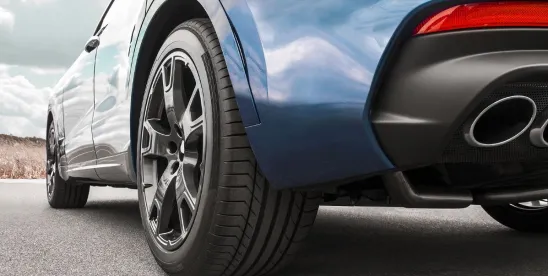Foley is here to help you through all aspects of rethinking your long-term business strategies, investments, partnerships, and technology. Contact the authors, your Foley relationship partner, or our Automotive Team to discuss and learn more.
Key Developments
- Foley & Lardner partners Gregory Husisian and David Simon detailed the rise and risks of tariff evasion in the POLITICO article, “As Trump raises tariffs, companies find ways to cheat — and risk getting caught.”
- The White House on July 31 released an executive order with modified “reciprocal” tariff rates of 10% to 41% on global trading partners that are scheduled to take effect August 7, 2025. In addition, the order announced a new 40% duty for any goods determined to have “transshipped to evade applicable duties.” This order is expected to conclude the reprieve to the implementation of the April 2 “Liberation Day” tariffs. Certain nations such as China, Canada and Mexico are not included in the list of modified tariff rates as they are covered under separate orders. Products “free of duty as under the United States-Mexico-Canada Agreement” are exempt from the order, according to Customs and Border Protection guidance.
- A July 31 executive order increased the International Emergency Economic Powers Act (IEEPA) tariff on Canada to 35%, from a previous level of 25%, in response to the “flow of illicit drugs” across the border. An accompanying fact sheet states “goods qualifying for preferential tariff treatment under the United States-Mexico-Canada Agreement (USMCA) continue to remain not subject to the IEEPA Canada tariffs.”
- On July 31, President Trump extended Mexico’s current tariff rate for 90 days, citing ongoing trade negotiations.
- The Trump administration’s 15% baseline tariff on imports of European goods announced in a July 27 framework trade agreement is expected to “cost the German automotive industry billions annually,” according to a statement from the auto industry association VDA.
- Bloomberg analysis suggests Hyundai and its affiliate Kia could incur up to $5 billion in tariff-related costs this year due to the 15% import duties in a proposed U.S. – South Korea trade agreement that was announced on July 30. More details about the trade agreement are expected once terms are finalized.
- A July 30 executive order announced plans to impose an additional 40% tariff on certain imports from Brazil that will be added to an existing 10% IEEPA tariff on the nation. The order includes a list of products exempted from the new tariff rate, such as certain types of iron ore, rubber and fuel oil.
- Bloomberg estimated that $15 billion worth of goods will be impacted by a presidential proclamation which imposed a Section 232 tariff of 50% on certain semi-finished copper and derivative products as of August 1. While the proclamation did not list specific items, a White House fact sheet described semi-finished copper products “such as copper pipes, wires, rods, sheets, and tubes,” and copper-intensive derivative products “such as pipe fittings, cables, connectors, and electrical components.”
- On August 5, President Trump suggested he could announce new Section 232 tariffs on semiconductors “within the next week or so.”
- U.S. new light-vehicle sales in July reached a SAAR of 16.4 million units, representing a 7.1% increase from June 2025 and a 3.7% increase year-over-year. J.D. Power and GlobalData noted that last year’s dealer software outages distort year-over-year comparisons due to last summer’s altered sales patterns.
- On July 29, the Environmental Protection Agency announced a proposal to repeal the landmark 2009 determination that greenhouse gas emissions endanger public health. The EPA stated that without the Endangerment Finding, the agency “would lack statutory authority under Section 202(a) of the Clean Air Act (CAA) to prescribe standards for greenhouse gas emissions.”
OEMs/Suppliers
- Automakers’ revised projections for tariff-related costs in full-year 2025 include up to $3 billion for Ford (with the expectation to offset roughly a third of the costs), $2.02 billion for Nissan, and $1.7 billion for Stellantis.
- GM maintained its projected tariff impact of $4 billion to $5 billion, with the potential to offset up to 30% of the costs.
- As the major automaker with the most significant U.S. vehicle manufacturing footprint, Ford expects to be at a competitive disadvantage due to the impact of U.S. tariffs on imported parts.
- Honda reported a 50% YOY decline in first-quarter operating profit due to the effects of a stronger yen, the cost of U.S. import tariffs, and one-time losses related to EVs. The automaker raised its annual earnings forecast, citing expectations for a weaker yen and tariff mitigation measures.
- Toyota’s first-half 2025 global sales increased 5.5% YOY to over 5.1 million units. The automaker is reported to have raised its full-year global production target to approximately 10 million vehicles.
- BMW maintained its full-year 2025 profit guidance following a 32% YOY decline in second-quarter pretax earnings. German automakers including Volkswagen, Porsche, and Mercedes-Benz have lowered their full-year 2025 outlooks, citing multiple challenges that included tariffs.
- Detroit automakers are expected to renew their focus on high-margin gas-powered SUVs and pickup trucks, amid tariff costs and a regulatory rollback that has eliminated fuel economy and emissions fines.
- The Michigan Strategic Fund (MSF) Board approved funding intended to help small and mid-size automotive suppliers transition to adjacent industries or vehicle electrification through the Michigan Auto Supplier Transition Program (MASTP).
- Samsung Electronics will manufacture next-generation artificial-intelligence chips for Tesla under a $16.5 million multiyear agreement. The agreement comes as Tesla CEO Elon Musk expressed the intent to shift the company’s focus to autonomous technology including robotaxis, as well as humanoid robots.
Market Trends and Regulatory
- The California Air Resources Board modified aspects of its Advanced Clean Trucks (ACT) standards to allow an “option for manufacturers to transfer surplus zero-emission vehicle (ZEV) and near-zero emission vehicle (NZEV) credits generated between states that adopted the ACT regulation.”
- Amazon expanded its online car shopping platform to include used and certified pre-owned vehicles, beginning with inventory from participating dealers in the Los Angeles market. Amazon Autos had initially launched with Hyundai vehicles.
- A group of UAW members are taking steps to unseat President Shawn Fain ahead of the union’s next leadership elections in 2026, according to a report in Bloomberg.
- U.S. import tariffs could increase domestic factory costs by 2% to 4.5% on average, according to analysis from the Washington Center for Equitable Growth.
Autonomous Technologies and Vehicle Software
- Automotive World provided an overview of market challenges impacting the development of software-defined vehicles (SDVs).
- Waymo and Avis intend to launch a robotaxi service in Dallas in 2026. Waymo estimated it books over 250,000 paid weekly trips in markets that include Atlanta, Austin, Los Angeles, Phoenix and San Francisco.
- U.S. Rep. Vince Fong, R-CA, introduced the AMERICA DRIVES Act to create a streamlined national process for permitting and operating certain autonomous commercial vehicles on interstate highways.
- Aurora Innovation is among the autonomous truck companies that recently began nighttime freight operations on select routes in Texas.
- S&P Global Mobility’s annual Connected Car Study found the percentage of consumers willing to pay for connected services dropped to 68% in 2025, from 86% in 2024. Adoption challenges include concerns over costs and data privacy, as well as unawareness of connected car features, and the complexity of managing multiple subscriptions.
- A report in The Wall Street Journal raised concerns over the effectiveness of “over the air” software updates to repair certain types of complex malfunctions in recalled vehicles.
Electric Vehicles and Low-Emissions Technology
- Multiple media sources reported LG Energy Solution reached a $4.3 billion multi-year agreement to supply lithium iron phosphate (LFP) batteries to Tesla. The LFP batteries are expected to be supplied from LG’s factory in Lansing, Michigan.
- S&P Global Mobility analysis published on July 30 indicated new U.S. EV retail registrations in the first five months of 2025 increased 8.1% year-over-year to exceed 450,000 units. However, EV market share rose just 0.2 percentage points YOY to 8.6%. The analysis also notes that more brands are competing amid stagnant market share growth: “81% of new EV retail registrations in January–May 2025 come from 10 OEM brands and the remaining 19% are spread across 27 other makes.”
- GM and EV battery reuse company Redwood Materials announced an agreement to build stationary energy storage systems using both new modules and second-life batteries from the automaker’s EVs. The update comes as a number of U.S. EV battery makers are expanding energy-storage system capabilities in response to slowing EV market growth.
- Citing “market conditions,” Mercedes plans to suspend EV orders and production for the U.S. for an unspecified duration beginning in September.
- Contract electronics manufacturer Foxconn reached an agreement to sell a former GM factory in Lordstown, Ohio that it purchased several years ago with the intent to produce EVs. Foxconn expects to continue to be involved with certain operations at the facility, including the production of an upcoming electric crossover for an unnamed North American client.
Analysis by Julie Dautermann, Competitive Intelligence Analyst






 />i
/>i
